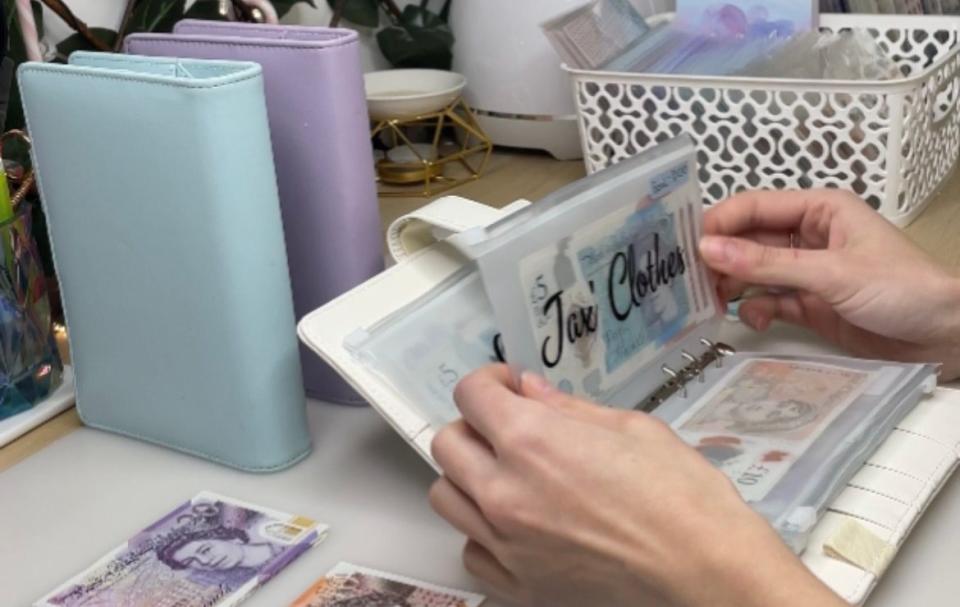How Gen Z made being stingy cool

We’ve all spent money we wish we hadn’t. Whether it’s reluctantly agreeing to split the bill when all you had was a salad and tap water while your friend tucked into a steak, or that group holiday you had to scrimp and save to afford.
But the era of grinning and bearing it could well be over – if we’re to believe the latest financial TikTok trend which has been dubbed “loud budgeting”.
Driven primarily by so-called American “finfluencers”, or “financial influencers”, the term has garnered more than 32.8 billion views on TikTok. It’s about being firmer about your financial boundaries, clearly telling family or friends when you don’t have the money to afford something, instead of paying up out of politeness or bravado.
It began as a counter-reaction to the “quiet luxury” trend, inspired by television shows such as Succession, whereby rich people “humble brag” about their wealth by pairing designer clothes costing thousands with jeans they bought in a charity shop.
While loud budgeting might be described as being tight by any other name, it is not the same as being broke. According to its creator, comedian Lukas Battle, it is instead about “broadcasting your limits”. And if living within these limits means cancelling a birthday trip, a dinner out, or even missing out on your best friend’s stag do to Prague, then so be it.

“You need to rewire your brain and stop comparing yourself to other people,” says TikTokker Jenny Park.
“Loud budgeting is having the confidence to tell people about your budget and that you can’t do certain things with them. Start getting comfortable with your budget boundaries,” writes wellness advocate Abigail Hall.
The list of tips to achieve the loud budgeting objectives is long, and includes: stop following luxury brands on Instagram, start bringing your lunch to work with you, make your coffee at home, stop “doom spending” (splashing out like it doesn’t matter), or “Delulu spending” (delusional spending).
The latest trend comes after “no-spend months” and “lazy girl jobs”, all terms that the young have adopted to endorse commonplace practices that have existed since before they were born.
Micheal Taylor, a 33-year-old stock trader, says he is vocal about how he chooses to spend his money.
“I prefer to invest my money rather than buy material things and often encourage friends to do the same.”
However, he doesn’t typically turn down the chance to go on a stag do, even if he is “loud budgeting”.
“These are often stag dos booked in places where few people would want to stay. Often they couldn’t be cheaper, so there’s no need to talk about it.”
Vix Munro, 59, who runs a money app, says talking about money more openly helps to address problems such as the gender pay gap, and makes it easier to talk about long-term goals.
She says: “It’s okay to not go out for dinner with someone because you’re choosing to use that money in a different way. Not just because you can’t afford it.
“Your money is being channelled to your priorities and goals, not someone else’s agenda,” she adds.
Ms Munro explains that telling friends or family that you wanted to meet on the cheap can be a better way to keep in touch, without frittering your money away.
She adds: “I definitely don’t advocate trying to keep up with the Joneses. They’re probably broke anyway.”

Unlike other TikTok trends, such as girl maths (which sees young women justify extra spending with a series of baffling pseudo-logical decisions), loud budgeting has not been panned by financial professionals.
Rosie Hooper, a chartered financial planner at investment platform Quilter Cheviot, explains that while loud budgeting is simply good sense by another name, it could help savers live within their financial means.
She says: “This trend toward openness about financial restraint among younger people is significant.
“This form of budgeting can set a positive example for peers and contribute to a broader cultural shift towards financial sustainability, and away from the pitfalls of consumerism.”
Recommended
‘I spend only two hours a week on my side hustle – but it will pay off my mortgage’
But that does not mean the advice of self-promoting financial TikTokkers should be accepted without due care and attention.
While some of the advice that is dished out in short, attention-grabbing clips is sensible, many of the influencers do not have formal chartered qualifications, and any guidance they offer should be taken with a large pinch of salt.
For example, those budgeting using the viral term “cash stuffing” – shovelling pay cheques into labelled envelopes each month – will be missing out on potential interest, not to mention security, you get by putting the money into the bank.

What’s more, many products, including energy bills and cinema tickets, can be more expensive if bought in cash, so “cash stuffing” influencers may well be missing out on the cheapest deals.
The videos are often generic, and do not tailor advice to different situations, so they can be opaque or misleading.
A further issue with “finfluencers”, raised in a recent CFA Institute report, is that they do not have to undergo compliance training when they work with financial institutions.
The study also found that influencers seemed to be failing to disclose whether they had been paid for the videos they were making, with up to three quarters of the financial content investigated containing no disclosures.
While budgeting advice can offer “finfluencers” a veneer of respectability, it remains to be seen if taking decisions based on TikTok videos can ever be truly sensible.
What are your thoughts on the “loud budgeting” trend? Join the conversation in the comments section below

